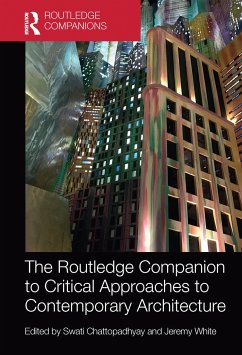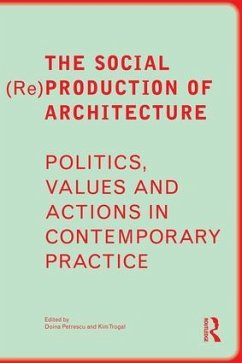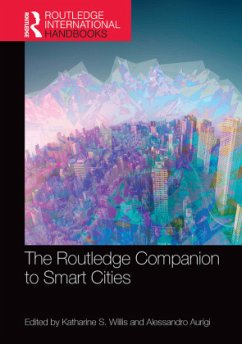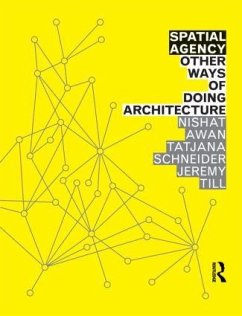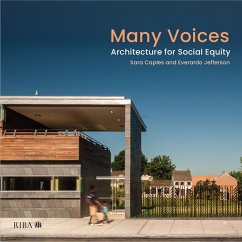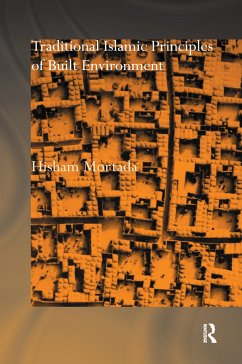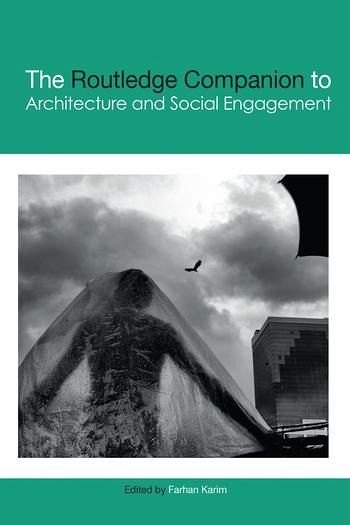
The Routledge Companion to Architecture and Social Engagement
Versandkostenfrei!
Versandfertig in 6-10 Tagen
49,99 €
inkl. MwSt.

PAYBACK Punkte
25 °P sammeln!
Socially engaged architecture is a broad and emerging architectural genre that promises to redefine architecture from a market-driven profession to a mix of social business, altruism, and activism that intends to eradicate poverty, resolve social exclusion, and construct an egalitarian global society. The Routledge Companion to Architecture and Social Engagement offers a critical enquiry of socially engaged architecture's current context characterized by socio-economic inequity, climate change, war, increasing global poverty, microfinance, the evolving notion of professionalism, the changing c...
Socially engaged architecture is a broad and emerging architectural genre that promises to redefine architecture from a market-driven profession to a mix of social business, altruism, and activism that intends to eradicate poverty, resolve social exclusion, and construct an egalitarian global society. The Routledge Companion to Architecture and Social Engagement offers a critical enquiry of socially engaged architecture's current context characterized by socio-economic inequity, climate change, war, increasing global poverty, microfinance, the evolving notion of professionalism, the changing conception of public, and finally the growing academic interest in re-visioning the social role of architecture. Organized around case studies from the United States, Brazil, Venezuela, the United Kingdom, South Africa, Rwanda, Burkina Faso, Nigeria, Nepal, Pakistan, Iran, Thailand, Germany, Australia, Taiwan, and Japan the book documents the most important recent developments in the field. By examining diverse working methods and philosophies of socially engaged architecture, the handbook shows how socially engaged architecture is entangled in the global politics of poverty, reconstruction of the public sphere, changing role of the state, charity, and neoliberal urbanism. The book presents debates around the issue of whether architecture actually empowers the participators and alleviates socio-economic exclusion or if it instead indirectly sustains an exploitive capitalism. Bringing together a range of theories and case studies, this companion offers a platform to facilitate future lines of inquiry in education, research, and practice.





